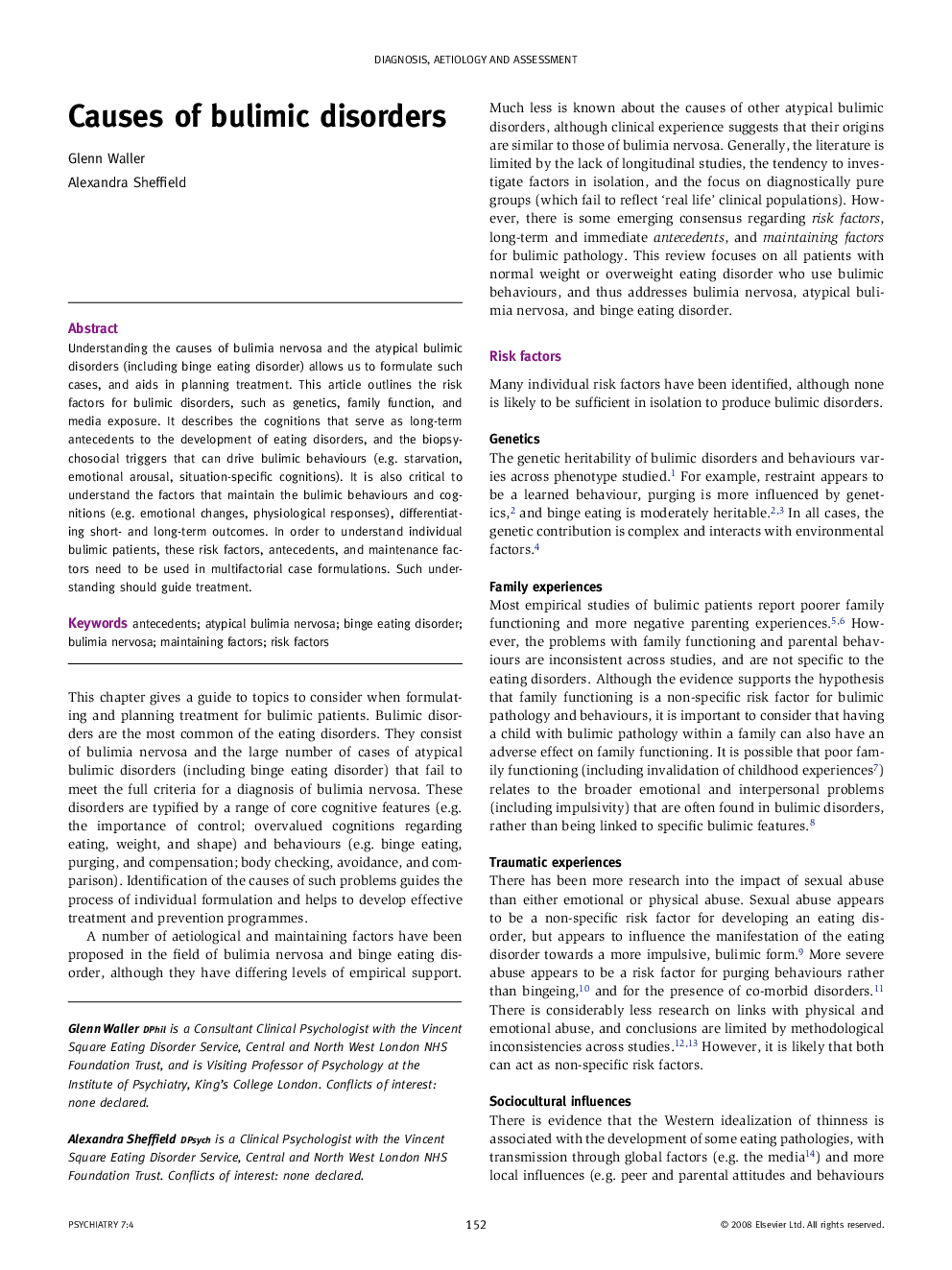| Article ID | Journal | Published Year | Pages | File Type |
|---|---|---|---|---|
| 4190031 | Psychiatry | 2008 | 4 Pages |
Understanding the causes of bulimia nervosa and the atypical bulimic disorders (including binge eating disorder) allows us to formulate such cases, and aids in planning treatment. This article outlines the risk factors for bulimic disorders, such as genetics, family function, and media exposure. It describes the cognitions that serve as long-term antecedents to the development of eating disorders, and the biopsychosocial triggers that can drive bulimic behaviours (e.g. starvation, emotional arousal, situation-specific cognitions). It is also critical to understand the factors that maintain the bulimic behaviours and cognitions (e.g. emotional changes, physiological responses), differentiating short- and long-term outcomes. In order to understand individual bulimic patients, these risk factors, antecedents, and maintenance factors need to be used in multifactorial case formulations. Such understanding should guide treatment.
